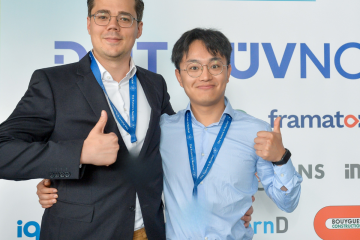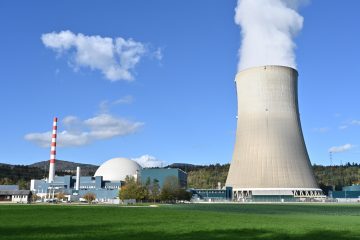On Friday, 1 July 2022, the online lecture took place from 16:30 to approx. 18:30.
"Status of the global development of nuclear energy - initial effects of the Ukraine war"
instead.
The speaker, Dr Ludger Mohrbach, first spoke for around an hour, taking us through his slides. This was followed by a lively discussion in which a number of questions were addressed.
In the run-up to the event, well over 100 people registered to take part in the lecture, but apparently just under 100 actually dialled in, which may have been due to technical problems, but is nevertheless a success and speaks in favour of this format of KTG events.
Contents:
The only option available today for solving the global energy supply problem at the costs we are used to, with comparatively low CO2 emissions and a secure energy supply, apart from large-scale hydropower, which can only be expanded further on a regional basis, is nuclear fission energy, which is currently being utilised by around 30 countries worldwide and is being developed by about half a dozen other newcomers through new construction or is in the planning stage.
The nuclear fuels uranium and thorium are available in sufficient quantities for many centuries and, if utilised in advanced reactors, for many thousands of years. Disposal in deep geological layers of the earth was and is technically and economically feasible due to the exorbitantly small residue masses retained from the outset.
From a historical and holistic perspective, nuclear energy is a very safe energy source.
In relation to the MWh of energy generated, there is no type of power generation that causes fewer people to be harmed.
Nevertheless, Germany is the only country in the world that is currently pursuing a genuine phase-out.
France, for example, has decided to extend the lifespan of its nuclear power plants by (initially) ten years, a move that has gone largely unnoticed by the German public.
The lecture also dealt with aspects of the current situation in Ukraine. The slides can be downloaded here.
As a visible thank you, the speaker was sent a bouquet of flowers home shortly before the lecture, which he presented to himself in front of the home office camera at the end.
Overall, this was a successful event with participants from all over Germany and some from neighbouring countries, so that a continuation of this online format is planned.
Speaker:
Dr Ludger Mohrbach studied mechanical engineering, specialising in reactor technology, at the Ruhr University in Bochum, where he completed his doctorate in 1989 on the thermal hydraulics of the fast breeder reactor.
Until 2019, he worked as a personal assistant to the management, consultant and head of the "Nuclear Technology" department at the International Technical Association of Power Plant Operators VGB in Essen.
Text: Dr Hans-Georg Willschütz, Spokesman KTG NORD Section


